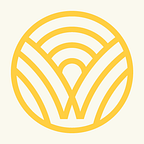PAEMST Spotlight: Dianne Thompson, NBCT
This week we’re spotlighting Washington’s state finalists for the Presidential Award for Excellence in Math and Science Teaching (PAEMST), who will go on to be considered for the national award in 2021. Check out the rest of our PAEMST Spotlight interview series here.
What has surprised you about teaching during a pandemic?
I was shocked to teach classes where I never saw the faces of some of my students, and never met them in person. It struck me that if I passed my own student in a grocery store, I wouldn’t know it!
Is there a distance learning lesson that you are particularly proud of?
I am extremely proud of every lesson in which I tried a new technology tool for the first time! I felt anxious every time, but the interactive tools saved me this year. They allowed for active participation of my students, and gave me a chance to really understand them as learners.
What is your greatest wish for school next year?
My greatest wish is that we are vaccinated, and able to be together. I love being in the classroom, and watching students interact and problem-solve together. I look forward to doing hands-on active science more!
What advice would you give to parents or caregivers who want to incorporate more science and mathematical thinking into their students’ lives?
My first thought is always to get them a microscope and a chemistry kit. Why? Because this is how I spent countless hours in the summers as a kid. Doing experiments, and looking at things under a microscope is something a lot of my scientist friends share in common. My own child really liked the computer games that are available for young kids to learn math. I think making science and math fun for kids can inspire a life long interest in the subjects.
Is there anything that has been easier to do in a remote school environment?
AP Environmental Science study guides have been better. I have my students write them in notebooks, and I used to collect them and grade them at the end of each unit, which was a burden on me, and left my students without their study guides for a time. This year, I broke it down, so they turn in one part of it each week, and submit a photo electronically. It’s much better for all of us, and something I will continue to do when we return.
Can you think of a funny moment to share from the past year+ of teaching in the pandemic?
I’ve had two funniest moments. One was when my husband came home early from work, as I was lecturing to a class from home. He didn’t understand that I was teaching online, and stood there saying “What? How am I supposed to know? What are you talking about? Did you feed the cats?…” I did try to explain that I was teaching, but it went on way too long, and I finally broke down in hysterics.
The other time happened when I was teaching online from my classroom at school. Just as class started, my room began to smell like a sewer as water came flooding in from a drain. After I called for help, four men came in wearing tyvek suits to clean my floor. I was doing a demo which required a camera in my room, so I opened the windows, and kept on teaching while the “hazmat” team did their work in the background!
What is one concept your students struggle most to understand and how to you try to address this struggle?
Understanding photosynthesis and cellular respiration when students have little background in chemistry is a major struggle. I try to address this by using chemical models to represent the atoms, and twist ties to represent the energy and allow students to use the models to build all of the molecules shown in the balanced equation. I plan to use the same models more to help them understand things like the carbon cycle.
Where do you see more opportunity for collaborating with other disciplines to teach math or science?
Right now, I’m just looking forward to students learning to do science from a young age through the adoption of NGSS. I like the idea of building on concepts and skills in a logical way throughout their entire education.
What are some of the jobs and pathways you are most excited to see your students preparing for?
I am absolutely thrilled when my students go into Biotechnology and anything to do with Environmental Science. I teach both of these courses, and I believe that these STEM careers can positively impact the world we live in by directly finding solutions to problems humans have created.
Who have you been following or reading from a math and science perspective in the past year? Any other publications, blogs, etc. that you would recommend?
I have been finding ideas for teaching remotely through groups like NGSS Biology teachers, the Coalition of Anti-Racist Biology Teachers, and National APES teachers, and others.
